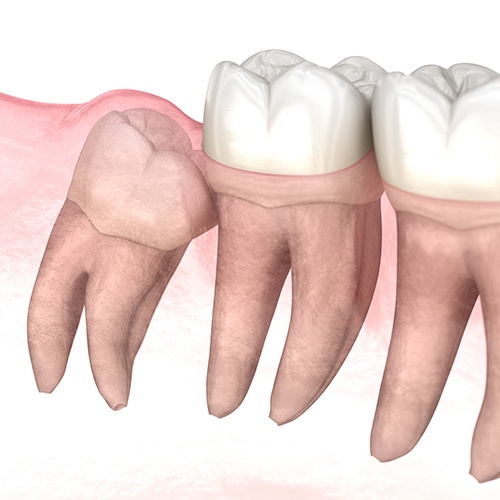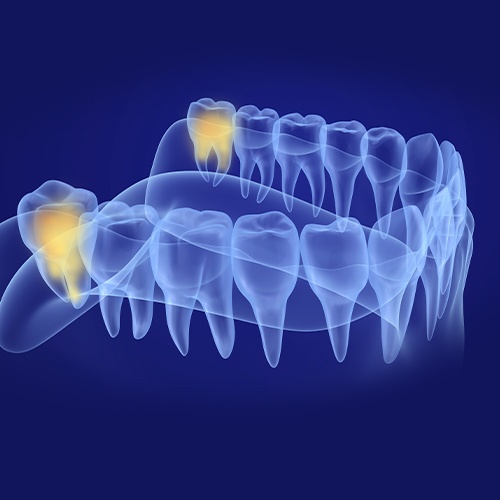Wisdom Tooth Extractions - Hackensack, NJ
Safe & Comfortable
Wisdom Teeth Care
The wisdom teeth are the last set of permanent teeth to emerge, usually appearing between the ages of 17-22. Unfortunately, in most cases, they are not able to erupt correctly, and instead become trapped beneath the gums, or impacted. The best solution is usually to extract them, which is a service we’re more than happy to provide here at Anderson Dental Center. Thanks to our in-house oral surgeon, we’re able to provide wisdom tooth extractions at our Hackensack, NJ dental office with uncommon quality, ensuring both adults and children easily remain comfortable throughout the process.
Why Choose Anderson Dental Center for Wisdom Tooth Extractions?
-
In-House Oral Surgeon:
Dr. Mohamed Ali, Boukheir -
Multiple Sedation
Options Ensure Comfort -
Dental Insurance
Welcomed & Maximized
When is Wisdom Tooth Extraction
Really Necessary?

Impacted wisdom teeth can lead to quite a few unpleasant symptoms. If you or your child are experiencing any of the following, it may be time for the wisdom teeth to come out:
- Persistent pain toward the back of the jaw
- Pressure felt on the back teeth
- Swelling or sensitive gums behind the molars
- A flap of gum tissue that traps food particles
- Oral pain in conjunction with fever (which could point toward an infection)
Wisdom Tooth Extraction Aftercare

A wisdom tooth extraction is a minor surgical procedure, so taking the right steps at home afterward is essential to a fast and easy recovery. Following the treatment, a patient should:
- Take the rest of the day off and relax. Too much physical activity can prolong bleeding and prevent the formation of a clot.
- Refrain from smoking, drinking with a straw, or spitting for 24-48 hours so a blood clot can form.
- Stick to a soft food diet initially and gradually integrate harder foods.
- Continue to practice oral hygiene while being careful around the surgery site.
- Take any pain medication and/or antibiotics as recommended by the dentist.
